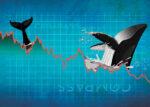A strong dollar doesn’t mean a weak U.S. real estate market for foreign investors, but it is affecting their decisions.
The dollar’s recent strength against the Euro and British pound has disincentivized some foreigners from buying in New York City and has encouraged many others to sell for large profits, industry insiders say. Buyers haven’t completely disappeared from the market, either.
“It’s a little bit tougher of a buy for Europeans but it all depends on what they’re doing with their dollars, what Plan B would be,” said David Mayer, a Corcoran broker whose team specializes in international sales.
Read more

The dollar has been rising in value against other currencies, driven by the Federal Reserve’s decision to increase interest rates. That has caused global investors to shift money from foreign markets to U.S. assets that now have higher yields.
In addition, high inflation, concerns about the economic consequences of the war in Ukraine and questionable fiscal policies abroad have weakened currencies including the euro and pound, which have historically been worth more than the dollar.
That means that Europeans and Brits whose wealth is in euros or pounds will pay more to buy in the U.S. than they would have six months ago. That has caused some individual investors to put off buying American real estate until the exchange rates swing back in their favor.
At the same time, it means those who already own property can sell their assets for more money in their native currencies than before.
“My clients from Brazil that purchased in New York back in the day, when they purchased their apartment the dollar was worth R$2, now it’s up to 5,6,7, so just from the currency market they’re doubling their investment,” said Augusto Bittencourt, a Compass broker with international clients, referring to the Brazilian real.
A dollar was last worth two units of the Brazilian currency in early 2013. On Friday it was worth 5.41 real.
Mayer said cash buyers, which include institutional investors and the ultra-wealthy, are still interested in buying despite the exchange rate because of the hot rental market. High interest rates, which don’t affect cash buyers but soften demand from those needing mortgages, have allowed some buyers to score deals.
“It’s kind of like the perfect storm,” said Mayer. “The beauty is that not only are they getting a great deal at the purchase, the return is ultimately much higher than it used to be.”
Other clients of his want to take advantage of the cooling market because they regret missing out on the low prices of 2020.
New York was tied for the fifth most popular destination for foreign buyers last year, according to a survey by the National Association of Realtors of its members. New York accounted for 4 percent of all foreign purchases, with 31 percent of those buyers coming from Asia and 22 percent from Europe.
“The market keeps moving regardless if they’re selling or if they’re buying,” said Bittencourt.